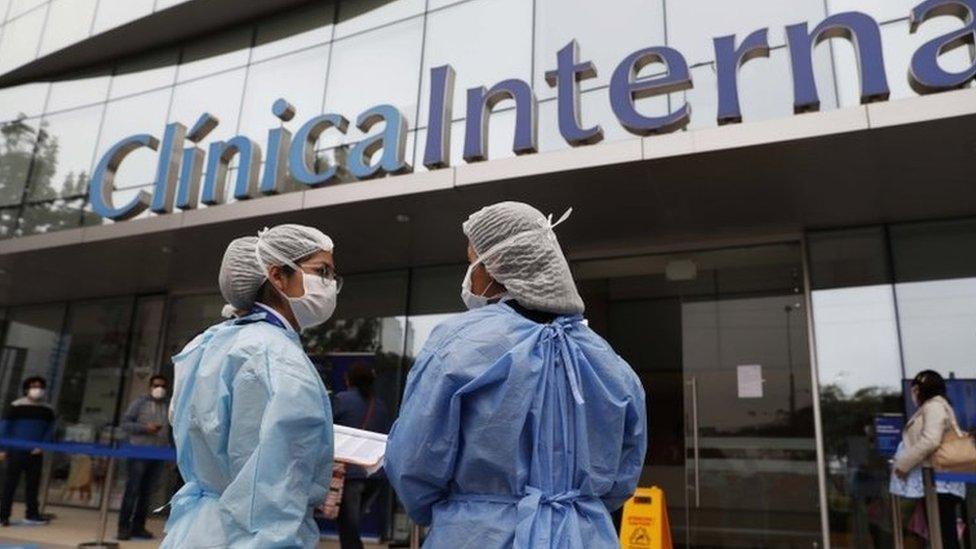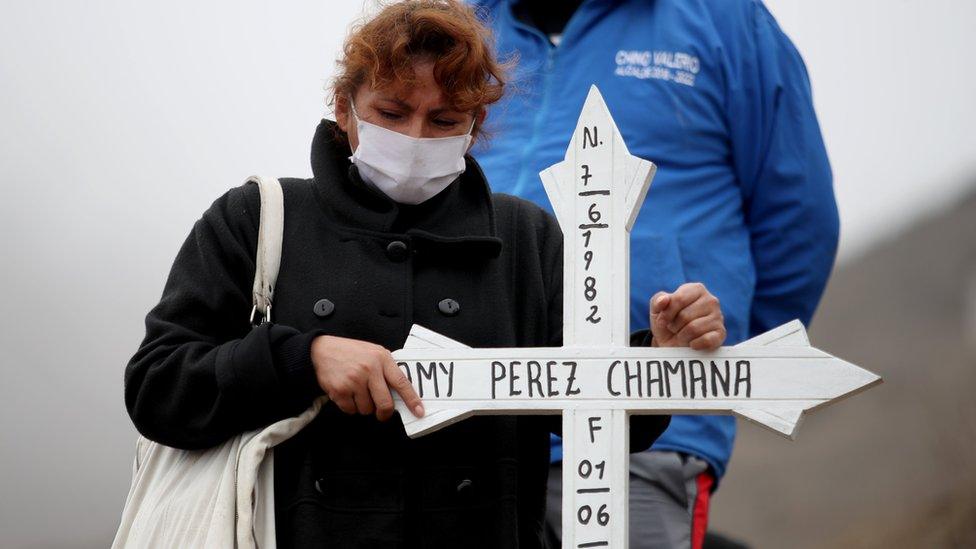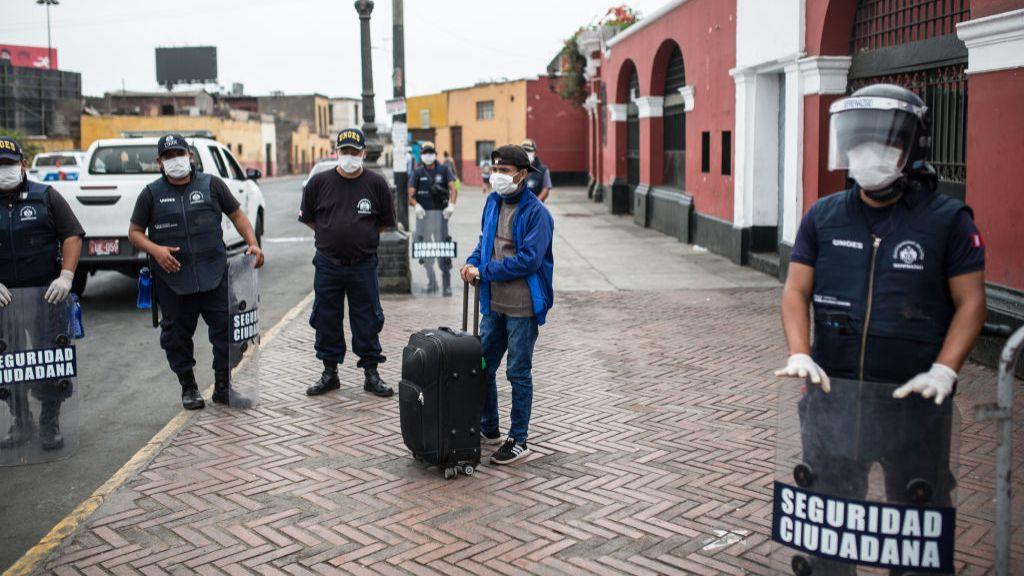Coronavirus: Peru allows Venezuela medics amid pandemic
- Published

The decree will allow hospitals to hire foreign doctors who are not on Peru's medical register
Peru is letting thousands of Venezuelan health workers who fled their country join the Peruvian health system during the coronavirus pandemic.
Peruvian President Martín Vizcarra signed a decree which exempts qualified foreign doctors and nurses from having to validate their degrees.
Peru has more than 430,000 cases of coronavirus and its health service has been struggling.
More than 830,000 Venezuelans have arrived in the country in recent years.
New start
In total, more than five million people have fled Venezuela's ongoing political and economic crisis with many seeking a new life in Colombia, Peru, Brazil and further afield in the US and Europe.
Some of those who sought a new life in Peru say they were met with xenophobia from Peruvians who fear that the Venezuelans are taking their jobs away.
Peru's Prime Minister Pedro Cateriano said that the emergency decree would allow qualified Peruvian and foreign doctors to practice medicine during the pandemic even if they are not registered with Peru's medical council.
"This way, all medical personnel residing here will be able to join this national cause [of fighting the coronavirus]," Mr Cateriano said.
"Over the past days we have seen small rises in the numbers of cases and deaths. We can't carry on as if there was no epidemic," the prime minister warned.

A SIMPLE GUIDE: How do I protect myself?
IMPACT: What the virus does to the body
RECOVERY: How long does it take?
LOCKDOWN: How can we lift restrictions?
ENDGAME: How do we get out of this mess?

The pandemic and the desperate need for qualified medical personnel it has created has given some Venezuelan doctors a chance to move from the informal sector into regular employment.
From doctor to market vendor
Felimar Luque is a Venezuelan gynaecologist who left her country in 2019. Before the new measure came into force, she told BBC News Mundo about the difficulties of being allowed to work in her profession in Peru.
She recalled how when she first arrived in the capital, Lima, she had to share a room with her sister where the two of them made arepas (Venezuelan corn cakes) which they would sell at a nearby market, making about $20 (£15) a day between the two of them.
She later found work in a pharmacy but could not afford to pay the fees to have her Venezuelan medical title validated in Peru.
Eventually, with the help of an NGO, and after having passed a number of tests and courses, Ms Luque managed to get her title validated and to have her name included in Peru's medical register.
She says that even once she was registered, she found it hard to get a job and it was only when the pandemic struck that she was offered a short term contract.
The Peruvian government says that the new decree will make the process of hiring foreign doctors much smoother and faster.
The Displaced: Venezuelans searching for peace in Trinidad
- Published16 June 2020

- Published3 April 2020
